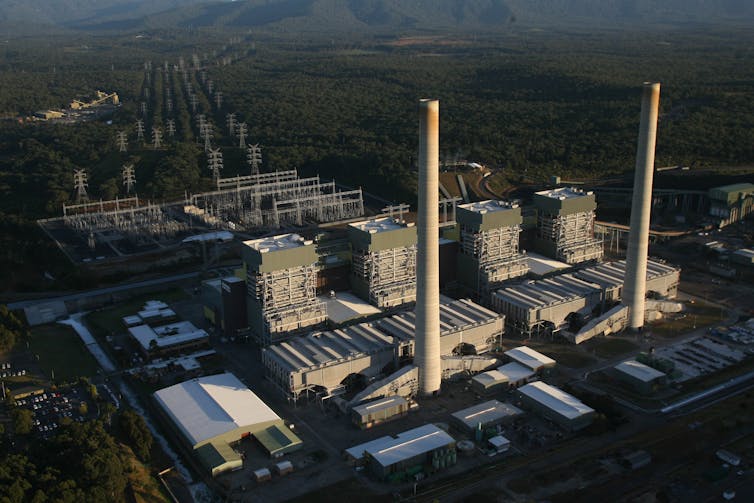In a bid to arrest escalating power prices, Australia’s federal, state and territory governments have agreed to impose caps on the wholesale price of coal and gas.
Announcing the decision after National Cabinet met on Friday, Prime Minister Anthony Albanese said parliament would be recalled next week to pass the necessary legislation. He indicated there was enough crossbench support for this to be a formality.
There will also be $1.5 billion to subsidise electricity bills for households and small businesses. This will be administered by state and territory governments starting in April 2023, and for households it will be subject to means tests.
For the next year, coal used in Australia cannot be sold in wholesale markets for more than $125 a tonne. Gas used in Australia cannot be sold in wholesale markets for more than $12 a gigajoule.
At the time of writing, the short-term (spot) market price for coal at the Newcastle export terminal was $580 a tonne. Gas could be bought at the Wallumbilla hub near Brisbane for $22 a gigajoule.
With such a big gap between spot coal and gas prices and the announced caps, can we expect much lower gas and electricity prices?
In short, maybe or maybe not.
The aphorism “the devil is in the detail” is made for questions like this. This is because of the complex ways domestic coal and gas markets are linked to export markets, how supplies are contracted, and the lack of publicly available information on supply and demand in these markets.
Effect on coal price
The majority of Australia’s coal-fired electricity generators get their coal from nearby mines. Much of this coal cannot be exported, either because of its low quality (such as the brown coal of Victoria’s Latrobe Valley) or because the transport infrastructure doesn’t exist.
This “mine mouth” coal is therefore unaffected by export prices. Its price is based on extraction and delivery costs, plus a margin (of course). In all cases this is well below the $125 per tonne cap.
There are exceptions. Two of Queensland’s eight coal-fired generators – the government-owned Stanwell and the privately owned Gladstone – are supplied by mines able to divert some coal to export markets.
In NSW, coal from most of the mines that supply the state’s six coal-fired stations can, to varying degrees, be diverted. But much of this supply is already contracted for years ahead, so the export price is unlikely to be an accurate estimate of the price power stations will pay.
As best we know, only the Eraring station, near Newcastle in NSW’s Hunter region, is currently paying a price higher than the cap.

In the National Energy Market covering eastern Australia the price of the most expensive generator sets the price all generators receive. The coal price cap is therefore likely to make a difference to wholesale electricity prices when the Eraring power station is setting the market price.
This happens about 30% of the time, according to the publicly available data. So capping the coal price Eraring will pay much below what it is now paying could have a big effect on electricity prices.
But there’s a caveat. How will Eraring’s coal supplier respond?
Will it continue to supply coal at the lower capped price? Or will it decide to divert that coal to more lucrative export markets?
If the former, we can reasonably say the cap will reduce electricity prices.
If the latter, we could potentially be facing a supply crisis, with much higher electricity prices. If Eraring, the largest generator in eastern Australia, sits idle for want of coal to burn, more expensive gas generators (if available) will have to take its place.
Effects on gas price
What about gas? It’s a similar story to coal, although diverting gas to the export market is easier than for coal (because gas is much easier to move than coal and the pipeline network is much more extensive than the coal freight network).
As a result, domestic spot gas prices are more closely linked to export prices.
Like the coal price cap, the gas price cap is much lower than spot gas price. So the question is whether gas suppliers will sell uncontracted gas at the capped price, or politely decline.
The government hopes the Heads of Agreement with gas suppliers will ensure supply. It remains to be seen whether such a deal will ensure supply at a much lower price than we see in the gas markets today, at least for spot market purchases.
Imperfect information
None of this is to suggest the decision to impose price caps is necessarily flawed.
I do not have the necessary information about the existing situation, or accurate foresight of what lies ahead, to pass a categorical judgement. Presumably neither do any of our governments. None of us can confidently predict success or failure.
At the media briefing to announce the policy, Albanese was asked to quantify the effect on prices. He wisely refused to name a number, but insisted the policy would place “downward pressure” on prices. Presumably the government intends that the rebates (to be funded by federal taxpayers and the jurisdictions) will kick in if the wholesale caps don’t work as hoped.
Are there obviously better solutions?
Orthodox economists would suggest these challenges should be handled outside the market (for example through coal and gas export taxes, which would provide income to bail out exposed customers).
Sounds easy, but here too many devils lurk in the details.
Source: The Conversation







